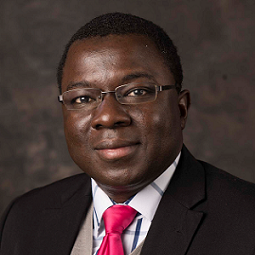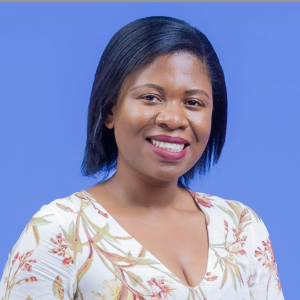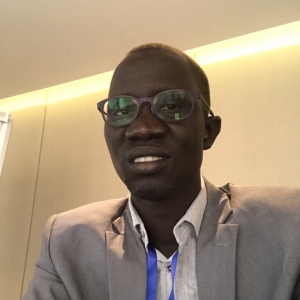Program Information
Applications are now closed. Please check back for any updates.
PDRI-DevLab is committed to building capacity for rigorous research on pressing policy challenges facing low- and middle-income countries (LMICs), by providing training and research opportunities for emerging researchers.
In service of this mission, PDRI-DevLab has launched a fellowship for social scientists from sub-Saharan Africa to spend a semester in residence at Penn in Fall of 2023. This fellowship is being implemented with technical assistance from the Center for Effective Global Action (CEGA), and with generous financial support from Penn Global’s Holman Africa Research and Engagement Fund.
Visiting fellows will have the opportunity to carry out independent research, present and receive feedback on their research, receive mentorship from faculty, audit doctoral-level classes, and launch collaborative research partnerships with Penn faculty and graduate students. Each visiting fellow will be paired with a faculty mentor affiliated with PDRI-DevLab. Each fellow will be further paired with a PDRI-DevLab-affiliated PhD student.
After completing the fellowship, fellows are expected to return to their home university or research institute in Sub-Saharan Africa and assume a leading role in promoting the use of impact evaluations and evidence-based public policy, while continuing to collaborate on research projects initiated with Penn colleagues.
During the fellowship, visiting researchers will:
- Audit doctoral-level courses on international development, impact evaluation, and research methods taught by PDRI-DevLab-affiliated faculty and other instructors from across Penn’s schools.
- Present their own research during seminars and workshops, and give guest lectures in classes or other events at Penn.
- Carry out an independent research project under the mentorship of a PDRI-DevLab faculty member.
- Launch collaborative research projects with PDRI-DevLab-affiliated faculty, graduate students, and other researchers at Penn.
- Potentially visit and present their research at other universities in the Northeast region.
- Participate in policy dissemination by contributing to policy briefs, and attending meetings with policymakers and other stakeholders.
- Participate in monthly “extracurricular” activity in the Philadelphia region (e.g., a visit to the Philadelphia Museum of Art, local historical sites, etc.)
Eligibility criteria: Applicants to the PDRI-DevLab Visiting Fellowship must:
- Be a national of a Sub-Saharan African country and be fluent in English; we follow the World Bank regional classification for Sub-Saharan Africa
- Have completed a PhD within the last 8 years, or be enrolled in a PhD program in political science, economics, statistics, sociology, education, epidemiology/public health, or another social science discipline;
- Have a current affiliation with a research institution, university or other research organization in Sub-Saharan Africa, preferably one that supports policy-relevant, quantitative social science research;
- Plan to return to a research institute in Sub-Saharan Africa after the fellowship.
Former PDRI-DevLab Visiting Fellows

Arsène Brice Bado
Dr. Arsène Brice Bado is the Vice President for academic affairs at the Centre de Recherche et d’Action pour la Paix/Université Jésuite (CERAP/UJ) in Abidjan, Côte d’Ivoire. He is also the Director of Evidence in Governance and Politics (EGAP) West Africa Regional Hub. Dr. Bado obtained his PhD in Political Science from Laval University in Canada in 2016. His research interests include democracy, ethnic pluralism, conflict analysis, forced migration, electoral processes in conflict ridden societies, and foreign aid in Africa.

Philip Smith
Philip Smith was previously a Behavioral Scientist at the Desmond Tutu Health Foundation (DTHF), at the Dept. of Medicine, University of Cape Town (UCT). He obtained his Masters at the UCT Dept. of Psychology (2010) and his PhD at the UCT Dept. of Medicine (2019). His work is primarily focused on pathways to generating and maintaining health and flourishing in under-served populations, focusing on structural and psychosocial factors that facilitate and hamper health-seeking behavior.

Martina Mchenga
Martina Mchenga, PhD is a Health Economist and a UKRI GCRF Accelerate Hub Postdoctoral research fellow at the Centre for Social Science Research, University of Cape Town. Her research interests include social and structural determinants of adolescent health, economic evaluation of health interventions, health financing, health policy and health systems strengthening. She has 10 years of work experience in conducting quantitative data analysis to inform policy. Martina holds a PhD in Economics from Stellenbosch University and Master of Arts in Economics from University of Malawi, Chancellor College. Previously, she worked as an Overseas Development Institute (ODI) fellow at the Ministries of Health in Sierra Leone and Malawi providing technical assistance on health financing reforms for universal health coverage.
 Augustino Ting Mayai
Augustino Ting Mayai
Augustino Ting Mayai is the chairperson of the South Sudan National Bureau of Statistics (SSNBS). He previously held the position of Managing Director at the Sudd Institute and served as its founding Research Director for a decade. He holds a BS in Sociology from the University of Utah, and a Ph.D. in Development/Sociology, with concentrations on demography and applied statistics from the University of Wisconsin-Madison. August is a current research Fellow at the University of Wisconsin, current PDRI-DevLab Fellow at the University of Pennsylvania, former University of Oxford’s research Fellow, current research board member of WHO’s Sub-Saharan African region, and current principal investigator for FCDO and University of Oxford’s funded research projects in South Sudan, including girl education and energy subsidies. August has published extensively on South Sudan’s current anffairs, with focus on conflict/humanitarian crisis, health, security, education, development, and gender. He is also a regular policy consultant for the World Bank, UNICEF, Save the Children, UNDP, UN Women, UNFPA, WFP/FAO, and the Government of South Sudan.

